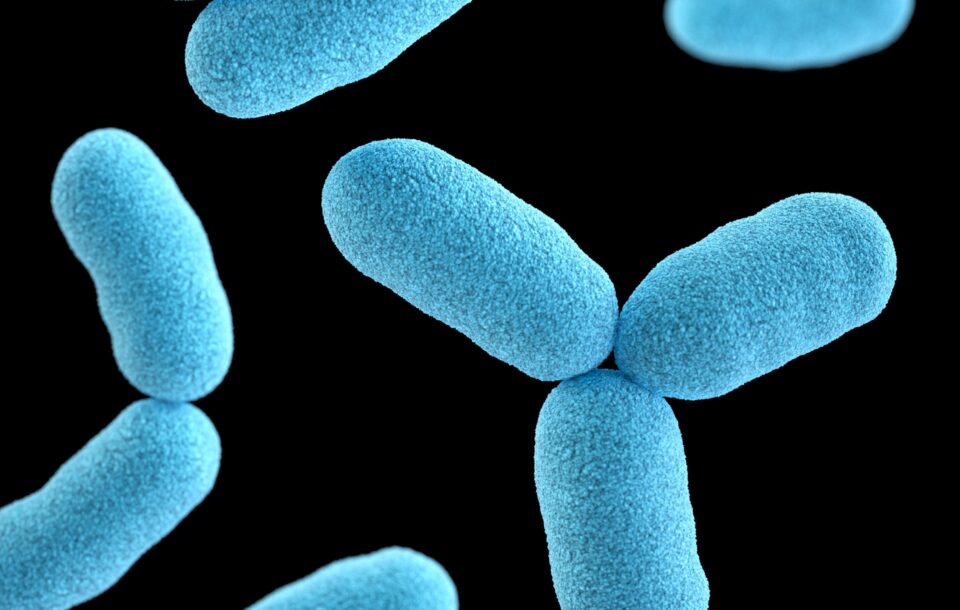Diagnostic Testing Near Me in Toronto, Oakville & Across Ontario

1. Nutreval FMV
Type: Whole Blood, Urine, Cheek Swab
- The NutrEval FMV® is both a blood and urine test that evaluates over 125 biomarkers and assesses the body’s functional need for 40 antioxidants, vitamins, minerals, essential fatty acids, amino acids, digestive support, and other select nutrients.
- Clinicians commonly use such testing to determine the nutritional deficiencies that are at the root of chronic conditions such as:
- Mood disorder
- Depression
- Anxiety
- Sleep disturbance
- Fibromyalgia or Fatigue
- Optimized health and sports fitness
- Mood disorder
The NutrEval® Profile includes:
Metabolic Analysis Profile
Metabolic Analysis assessment provides information on 45 key organic acids. These biomarkers are grouped into easy-to-understand categories, and provide insight for functional support in the areas of: malabsorption & dysbiosis; cellular energy & mitochondrial metabolism; neurotransmitter metabolism; vitamin deficiencies; and toxin exposure & detoxification need.
Amino Acids Analysis
Amino Acids analysis features either plasma (37 total) or urine (41 total) amino acids. This assesses nutritionally essential and non-essential amino acids, as well as intermediary metabolites that augment an understanding of B vitamin need, and need for support of protein digestion & absorption.
Essential & Metabolic Fatty Acids Analysis
Essential and Metabolic Fatty Acids Analysis provides a high level overview of the balance of various families of fatty acids in relation to each other: Omega 3, 6 and 9 Fatty Acids; Saturated Fatty Acids; and Monounsaturated Omega 7 and Trans Fats. It also provides key ratios for understanding cardiovascular risk, including the Omega 3 Index.
Elemental Analysis, Packed Eyrthrocytes
Elemental Profiles provide information in two categories: Nutrient Elements which evaluates intracellular nutrient status, and Toxic Elements which evaluate short-term toxic element exposure.
Oxidative Stress
Oxidative Stress biomarkers highlight the body’s current state of oxidative stress and reserve capacity. Markers of oxidative injury assess cell membrane (lipid peroxides) and DNA (8-hydroxydeguanosine/8-OHdG) damage, while direct measurement of glutathione and CoQ10 provide insight into antioxidant reserve available to counter free-radical impact. Additional markers are available in our Oxidative Stress 2.0 profile.
-
Cheek Swab Add- Ons
- MTHFR: mutations of this gene have shown to change the ‘methylation’ of your genes, leading to low levels of folate and other vitamins.
- COMT: a gene for an enzyme that degrades several catecholamines (such as dopamine, epinephrine, and norepinephrine) and other drugs. It mainly regulates dopamine levels.
- TNF-α: a gene for a protein in the body used for immunological cell signaling. For example, mutations in this gene can cause higher levels of inflammation.
- APOE: this gene codes for a protein involved in the metabolism of fats in the body of mammals. For example, a subtype is implicated in Alzheimer’s disease and cardiovascular disease.
2. Heavy Metal Testing
Type: Urine
This test evaluates the levels of heavy metals found in the blood and tissue organs. This panel tests the following heavy metals:
- Aluminum
- Antimony
- Arsenic (total)
- Barium
- Beryllium
- Bismuth
- Cadmium
- Lead
- Mercury
- Nickel
- Silver
- Thallium
- Uranium


3. Adrenal Stress Profile
Type: Saliva
The adrenal glands, otherwise known as the “stress glands,” enable our bodies to cope with stress and survive. They sit on top of the kidneys and are shaped like two tiny triangles, mobilizing a response to our environments.
They secrete the following hormones:
- Cortisol: long-term management of daily stress
- DHEA: precursors to estrogens and testosterones; can also balance some of the negative effects of cortisol
- Epinephrine/Norepinephrine
This test is a 4-point cortisol test (morning, noon, evening and night) along with DHEAS.
4. Comprehensive Thyroid Profile
Type: Blood Spot, Dried Urine
Thyroid disease or dysfunction can explain a wide variety of symptoms, but is notoriously under-diagnosed. Thyroid function can be affected by nutritional deficiencies, particularly iodine and selenium and by environmental exposure to bromine, arsenic, selenium, mercury and cadmium.
This test evaluates the following: Tgbn, TSH, fT4, fT3, TPOab, Iodine, Bromine, Arsenic, Mercury, Cadmium, Creatinine.


5. Sleep Balance Profile
Type: Saliva, Dried Urine
There are 3.3 million Canadians that suffer from insomnia. There is a natural sleep rhythm that balances Cortisol and Melatonin levels that can be interrupted by chronic stress, among other things. With 3.3 million Canadians struggling with Insomnia, it’s not a surprise that that hormone-sleep connection is mostly overlooked.
Common hormone-related causes of sleep loss often involve the following scenarios:
High Cortisol
Results in insomnia, anxiety, sugar cravings, feeling tired but wired & increased belly fat
Low Melatonin
Results in excessive fatigue, depression, anxiety & insomnia
Neurotransmitter Imbalance
Changes in sex steroid hormone levels during menopause can impact neurotransmitter levels, leading to recurring sleep issues.
This test evaluates the following: Melatonin- 4 time points, Free Cortisol- 4 time points, Free Cortisone- 4 time points, Creatinine. Add-On: Norepinephrine- 4 time points, Epinephrine- 4 time points
6. NeuroAdvanced Profile
Genetics, environment, chemicals and nutritional deficiencies are a few factors that can impact neurotransmitter production. Once out of balance, the nervous system begins to compensate – which, in time, can lead to neurological or psychological symptoms.
Some of the more common psychological conditions today are known to be accompanied by neurotransmitter imbalances. However, it’s also possible for individuals to present with similar symptoms yet have unique foundational imbalances. Testing helps clarify these root issues.
Common neurotransmitter-related causes of health issues often involve the following scenarios:
Anxiety & Depression
Neurotransmitter imbalances are often associated with anxiety and depression, specifically Glutamate (panic attacks), PEA, Histamine, Serotonin, as well as Epinephrine & Norepinephrine. Learn how Epinephrine & Norepinephrine affect chronic stress.
Chronic Fatigue
An imbalance between excitatory and inhibitory neurotransmitters can lead to persistent fatigue.
Impulsivity
GABA, Dopamine and Serotonin are three chemical messengers commonly linked to disorders like ADD, ADHD & OCD.
Insomnia
Imbalances in Glutamate, Histamine, Dopamine, GABA and Serotonin are often linked to sleep disturbances and insomnia.
PMS or PMDD
Imbalances in Serotonin, Dopamine, Norepinephrine and GABA are often involved in cases of PMDD (pre-menstrual dysphoric disorder) and severe PMS.


7. RGCC
RGCC (Research Genetics Cancer Center) is a medical genetics company, established in 2004 with headquarters in Switzerland.
RGCC are experts in developing and providing personalised cancer genetics tests for doctors and patients. For example, Onconomics Plus can test tumour sensitivity and resistance to chemotherapy treatment and a range of natural substances.
8. SpectraCell
SpectraCell Laboratories provides precision diagnostic tests on a cellular level.
Micronutrients
Vitamins
-
- Vitamin A
- Vitamin B1
- Vitamin B2
- Vitamin B3
- Vitamin B6
- Vitamin B12
- Biotin
- Folate
- Pantothenate
- Vitamin C
- Vitamin D3
- Vitamin K2
Minerals
-
- Calcium
- Magnesium
- Manganese
- Zinc
- Copper
Amino Acids
-
- Asparagine
- Glutamine
- Serine
Fatty Acids
-
- Oleic Acid
Antioxidants
-
- Alpha Lipoic Acid
- Coenzyme Q10
- Cysteine
- Glutathione
- Selenium
- Vitamin E
Carbohydrate Metabolism
-
- Chromium
- Fructose Sensitivity
- Glucose-Insulin Metabolism
Metabolites
-
- Choline
- Inositol
- Carnitine
Spectrox®
-
- Total Antioxidant Function
Immunidex
-
- Immune Response Score
Telomere Length
Telomeres are sections of genetic material that form a protective cap at the end of each chromosome in every cell of the body. When a cell divides, the telomere gets a tiny bit shorter, until there is no more telomere left to protect DNA from “unraveling,” and the cell dies. Cellular death causes the body to age, thus making telomeres a novel biomarker for biological age. The longer one’s telomeres, the younger one’s biological age. Moreover, the rate at which telomeres shorten is accelerated by inflammation, oxidative stress, nutritional deficiencies, genetic pre-disposition, and other lifestyle habits. Telomere shortening, when expedited, contributes to cardiovascular disease, dementia, stroke, and cancers.
MTHFR genotyping
Methylation refers to the biochemical pathway in which methyl groups (one carbon and three hydrogen atoms) are added to molecules. Because it is involved in nearly all of the body’s functions, it contributes to countless biological processes including:
- Detoxification
- Energy production
- Genetic expression/DNA repair
- Inflammatory, immune, and stress response
- Neurotransmitter balance
- Production and recycling of glutathione


9. Gastrointestinal Health
The Upper Room works with Doctor’s Data to provide a wide array of diagnostic testing to examine the root cause of a range of gastrointestinal disorders.

